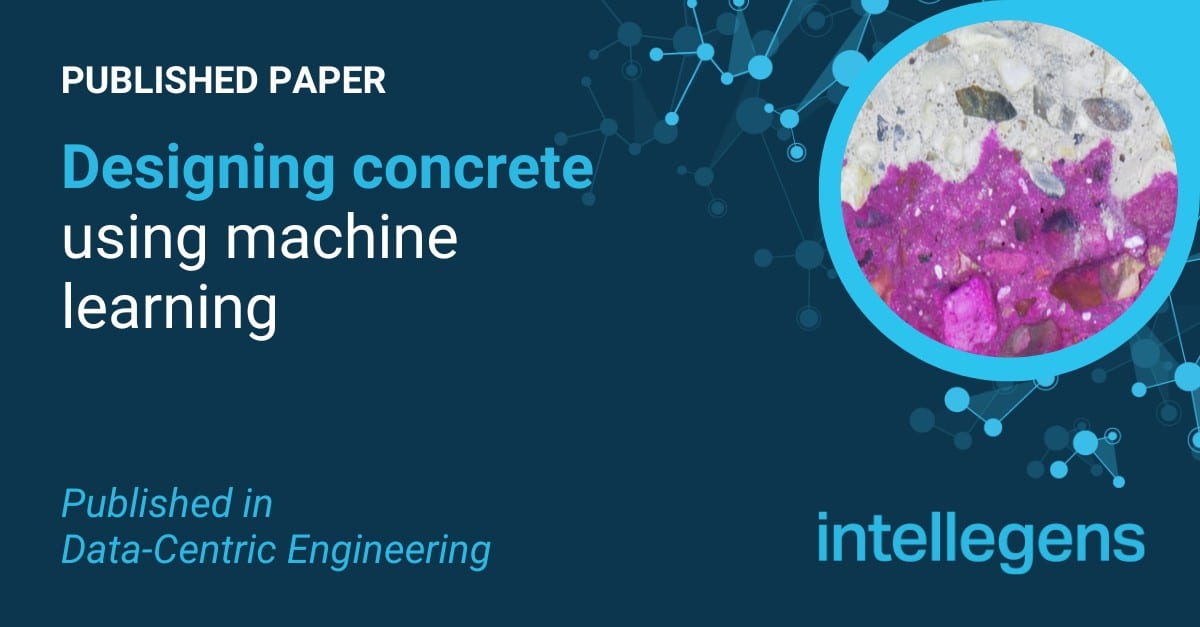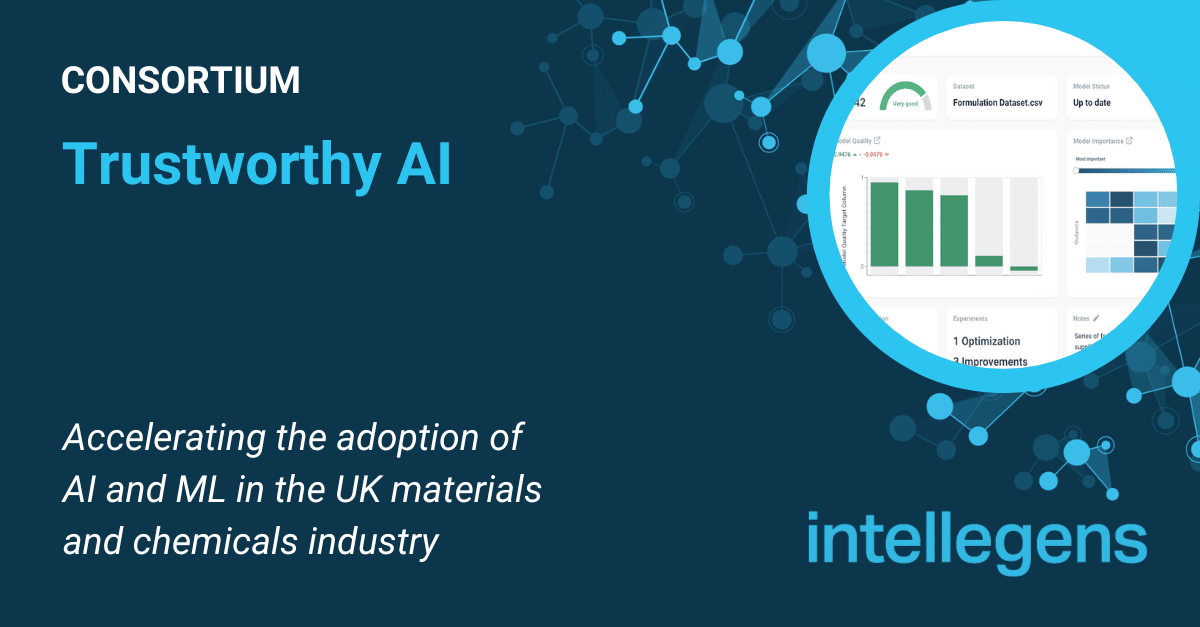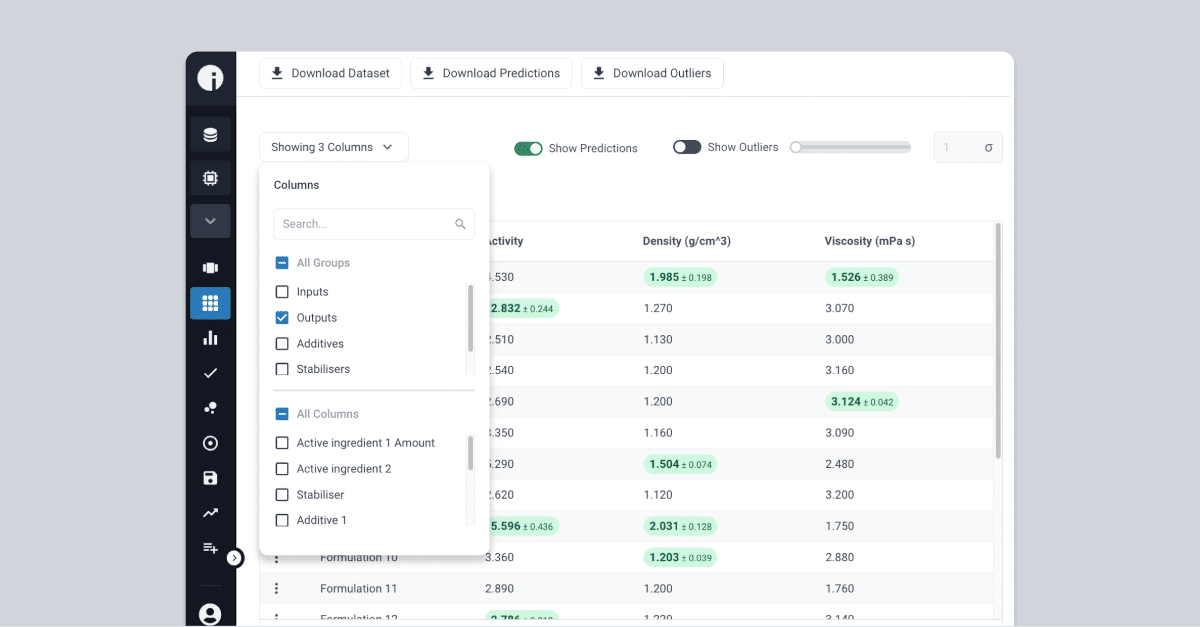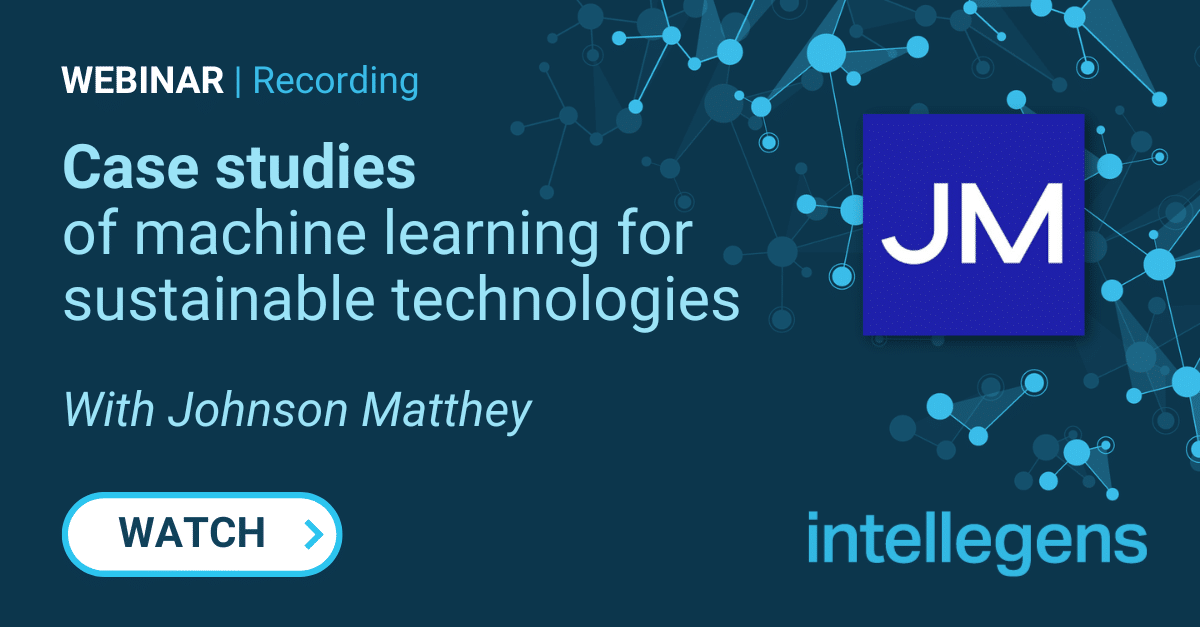Welcome to the Intellegens newsletter, where we share the latest news,
developments, and achievements from the team at Intellegens.
Want to receive new editions of our Newsletter straight to your inbox?
Click here to subscribe!
Upcoming webinar: ML for life sciences R&D with CPI
Machine learning methods generate insights from data to accelerate innovation in areas including drug discovery, translational medicine, formulation, and manufacturing processes. In this webinar, we’ll explore the potential and some of the challenges of applying this technology. We’ll hear a case study from Lukas Kuerten of CPI on using machine learning to predict viability of biopharmaceuticals early in development.
Published paper - Novel approach designs new concretes
Concrete is responsible for 4-8% of all global CO2 emissions. So new concrete mixes with lower environmental impact are important research breakthroughs. A new paper in Data-Centric Engineering describes work that not only resulted in new, experimentally-validated, greener concrete, but also featured a novel application of machine learning. This was able to extract useful information from what appears to be ‘noise’ in the experimental data – taking the ability of AI to squeeze value from such data to new levels. Intellegens CSO Dr Gareth Conduit is a co-author, along with collaborators at the University of Cambridge.
'Trustworthy AI' focus for new chemicals / materials project
Intellegens is to lead a consortium focused on accelerating the adoption of artificial intelligence (AI) and machine learning (ML) in the UK materials and chemicals industries. The initial phase of the project, funded by Innovate UK KTN, part of UK Research and Innovation, will study factors that limit use of these technologies. It will recommend steps to increase trust and drive the application of AI and ML to optimise vital products and processes while reducing energy and resource consumption in pursuit of net zero goals.
New software feature - working quickly with 100s of inputs
When your dataset contains many hundreds of ingredients, process parameters and measured outputs, it can be almost impossible to see through the noise to gain useful insights and design experiments that focus on the right part of your design space. With the new Column Groups feature in Alchemite™ Analytics, users can quickly and easily group and subgroup key parts of their dataset, such as similar formulation ingredients. These can then be used to enable clearer visualizations and add complex constraints to experimental designs (such as “these 500 ingredients must sum to 100%”) in just a few clicks.
Recording - JM improves yields, cuts experimental timescales
In April’s webinar, our guest speaker, Claire Hatfield from Johnson Matthey, presented new case studies of the use of machine learning in designing catalyst formulations for clean air and life science applications. Benefits included a 4% increase in yield from a key process and significant reductions in experimental time and cost. You can watch the recording online.
Blog: Should I trust AI?
It can be hard to implement new AI technologies in highly regulated industries with long-standing practices, especially when prospective users may find it difficult to understand (and thus to trust) why an AI method is making a particular recommendation. This month’s blog explores this issue with a little help from ChatGPT.
Upcoming events
Catch up with us at one of these events in the coming months:
May 10-11 – GRIPS – Plastics Sustainability, Coventry, UK
May 23 – Webinar: Machine learning for life sciences R&D, Online
June 14 – Apply Alchemite™ machine learning to academic research, Online
June 28-29 – The Advanced Materials Show, Birmingham, UK
For more information on how our technology can be applied to your specific needs visit https://intellegens.com or contact us at info@intellegens.com.






